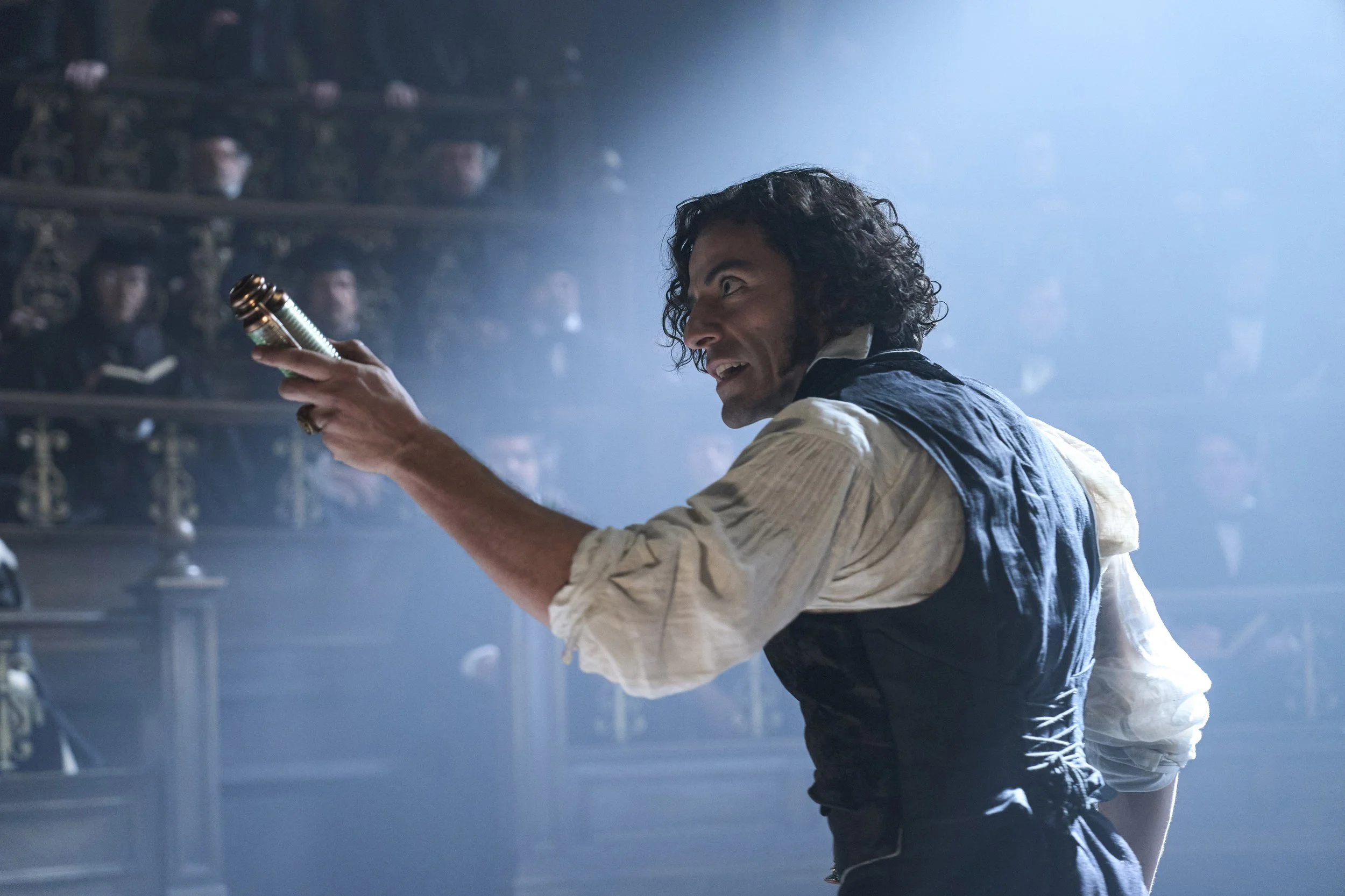Frankenstein: Guillermo del Toro Finally Gives the 'Monster' His Say
By Jim Slotek
Rating: A-
You might well ask, after umpteen hundred film treatments of Frankenstein over generations (starting with Edison Studios’ version in 1910), what is left to say about the creature made of spare parts and jump-started electrically?
Well, if you’re Guillermo del Toro with his recent Toronto International Film Festival feature Frankenstein, there’s always Mary Shelley’s original novel, written 200 years ago as a warning against hubris, human overreach and playing God. In the film world, Victor Frankenstein is almost always the hero of his own story, nobly trying to undo his foolish mistake.
Oscar Isaac as an utterly dislikable Victor Frankenstein
But the idea that Victor is the actual monster, and the “creature” the victim is truer to the source. And Oscar Isaac is certainly one of the most dislikeable Victor Frankensteins in film history, haughty, derisive and driven. Eventually, he alienates everyone kindly disposed to him, including his brother’s fiancé Elizabeth (Mia Goth) and a rich nobleman (Christoph Waltz) who shares Victor’s delusions of godhood and finances his project.
Cadavers? No problem, and no grave-robbing necessary. There’s a war going on, and fresh flesh is on offer in smoking battlefields to be sawn off at will. Morals? Ethics? Death is all around – and visits itself upon more than one of the movie’s characters – so it’s nothing that the pragmatic and goal-oriented Victor can’t deal with.
Del Toro’s approach keys on aspects of the source material that always stayed with me. It opens in the Arctic, where the original story ended up with a chase across the ice floes. Beginning at the end gives the “creature” a chance to demonstrate his power, and more importantly, tell his own story to the captain of an iced-in ship where Victor seeks refuge.
I don’t know when Frankenstein’s monster became almost permanently an incoherent, lurching killing machine. But this is a creature who deserves all the sympathy del Toro drums up for him.
Kudos to Jacob Elordi, whose touching innocence and heartbreaking encounters with the violent world of man, shines through all the makeup. He touches the heart of Elizabeth, who finally begins to see how ultimately irredeemable Victor is, by his cavalier and dismissive treatment of the person he has created.
The costumes and sets are terrific, and the Arctic scenes oppressively bleak. The drama is buttressed by era-appropriate formality in dialogue and delivery. Subtlety is not a strong-point of the movie, but considering the story, of a creature alternately on the run and on a rampage, this seems a moot criticism.
There’s a bit of a Rashomon aspect to the dueling tales of how the creature came to be. Victor is the first to tell his story to the ship captain, and his cold narrative takes up the first half of the film. Then the creature gets his say, and it is compelling. There’s even a redemptive last-scene moment that del Toro invented that maybe seems a little movie-like.
In the end, del Toro has created an impressive piece of entertainment that manages to retain the existential thoughts that inspired Frankenstein in the first place. Ultimately, it’s one of his best films.
Frankenstein. Directed by Guillermo del Toro. Starring Oscar Isaac, Mia Goth and Jacob Elordi. In selected theatres October 17, and on Netflix globally November 7.


